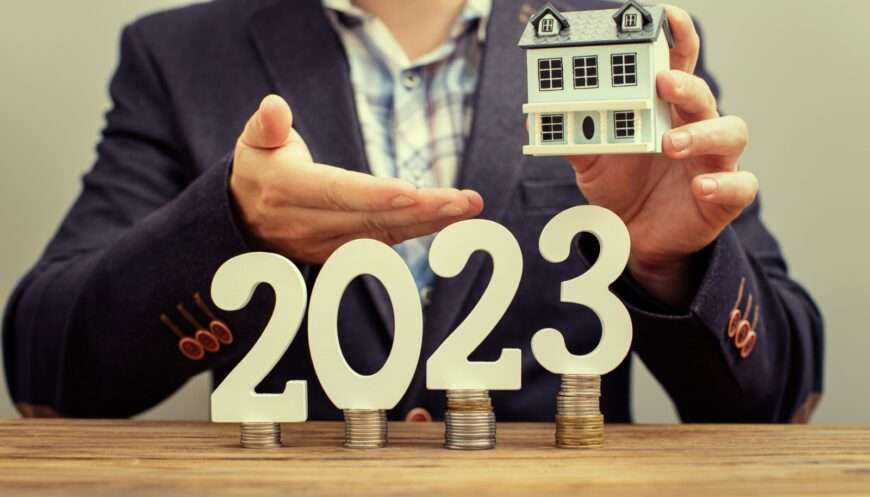What is IFMS in Real Estate?”
What is IFMS in Real Estate?

IFMS, or Interest-Free Maintenance Security Charges, is a payment made by property buyers to developers before the formation of their residents’ association (RWA). This upfront deposit essentially acts as a secure fund for covering essential expenses like maintenance, upkeep, security, and even initial development projects. It ensures smooth upkeep of the property until residents take ownership through their RWA, offering peace of mind for both buyers and developers.”
Focus on Clarity and Benefit:
-
- Demystifying IFMS: Unraveling the Secrets of Interest-Free Maintenance Security Charges
-
- Unlocking Your Next Home: A Simple Guide to IFMS in Real Estate
-
- Invest Wisely: Understanding IFMS and Protecting Your Real Estate Investment
-
- The IFMS Advantage: How Interest-Free Security Charges Benefit Buyers and Developers
-
- Don’t Get Caught Off Guard: Demystifying IFMS Before You Buy Your Dream Home
Intrigue and Curiosity:
-
- IFMS: The Real Estate Charge You Need to Know About (But Nobody is Talking About)
-
- Is IFMS Right for You? Unlocking the Pros and Cons of Interest-Free Maintenance Security Charges
-
- The Key to Smooth Property Ownership: Unraveling the IFMS Mystery
-
- Don’t Let IFMS Trip You Up: A Beginner’s Guide to This Essential Real Estate Concept
-
- Is IFMS the Future of Real Estate? Exploring a Unique Funding Model
Is it applicable only to the residents?
Investing in a new property, whether a cozy condo or a bustling office complex, often involves several charges, and IFMS might initially sound mysterious. Fear not! In simpler terms, it’s like a pre-paid maintenance fund, a bit like an “insurance policy for your future upkeep.” It’s an additional charge levied on buyers for any type of property, ensuring resources are readily available when residents take over responsibility, keeping your new haven shiny and functional.
Will it be included in the security deposit/token money?
Forget confusing overlaps! Unlike your standard security deposit or token money, which act as safeguards against damage or defaults, IFMS is a dedicated “future fund” for your new property. Think of it as a separate bank account, specifically earmarked for maintenance once residents take over. This means the developer manages these funds until the Residents’ Welfare Association is formed, ensuring smooth sailing from construction to community-driven upkeep.
Humor and Engagement:
-
- IFMS: It’s Not as Scary as it Sounds! A Demystifying Guide for Clueless Homebuyers
-
- Don’t Be an IFMS-Phobic: Navigating the World of Interest-Free Maintenance Charges
-
- The Buzz on IFMS: What Every Homebuyer Needs to Know (Before the Gossip Flies)
-
- From Jargon to Joy: Cracking the Code of IFMS in Real Estate
-
- IFMS: It’s Not Rocket Science, But We’ll Explain it Anyway!
Indian Real Estate Market in 2024
Indian Real Estate Market in 2024

As we approach 2024, the Indian real estate market in 2024 presents an exciting picture of growth and resilience. The embers of a strong recovery are evident, fuelled by several factors:
- A Burgeoning Economy: India’s GDP is projected to grow at a robust 7.8% in 2024, creating a positive ripple effect across various sectors, including real estate.
- Rising Disposable Incomes: With increasing employment opportunities and a growing middle class, disposable incomes are on the rise, leading to higher spending power and a greater propensity to invest in real estate.
- Favorable Demographics: India boasts a young and aspirational population with dreams of owning property, further fueling demand.
These factors have collectively contributed to a remarkable resurgence in the Indian real estate market in 2023. Strong demand was observed across residential, commercial, and industrial segments, highlighting the overall market’s dynamism.
The Luxury Boom
The luxury real estate segment witnessed an unprecedented boom in 2023. This was driven by a combination of:
- Low Interest Rates: Historically low interest rates made borrowing more affordable, encouraging investment in luxury properties.
- Investor Confidence: The positive economic outlook and a stable political environment instilled confidence in investors, leading them to seek out luxurious real estate options.
- Pent-up Demand: The pandemic had created a pent-up demand for luxury living, which unleashed when restrictions eased and economic activity resumed.
This confluence of factors resulted in a surge in demand for high-end properties, particularly in prime locations within major cities.
Affordable Housing: A Growing Force
The affordable housing segment also continued to gain significant momentum in 2023. This can be attributed to:
- Government Initiatives: The government’s continued focus on promoting affordable housing through schemes like PMAY (Pradhan Mantri Awas Yojana) has facilitated access to housing for lower-income segments.
- Growing Aspirations: The aspirations of the middle class to own their own homes have propelled demand for affordable housing options, particularly in developing areas.
- Rising Urbanization: Rapid urbanization, coupled with limited land availability, has led to a growing need for compact and affordable housing solutions.
As a result, the affordable housing segment has emerged as a key driver of growth in the Indian real estate market, providing much-needed homes for a large section of the population.
government sponsored affordable housing project in India
Looking Ahead to 2024: Opportunities and Challenges
While the Indian real estate market is poised for further growth in 2024, several challenges and opportunities warrant consideration:
Opportunities:
- Continued Demand Growth: Strong economic fundamentals and a growing population are expected to drive sustained demand across various segments.
- Emerging Trends: The rise of proptech, co-living spaces, and sustainable development practices presents exciting investment opportunities.
- Government Focus: The government’s continued commitment to infrastructure development and housing affordability is expected to create a conducive environment for long-term growth.
Challenges:
- Rising Interest Rates: Potential increases in interest rates could dampen buyer sentiment and impact affordability.
- Global Headwinds: Global economic uncertainties and geopolitical tensions could introduce volatility into the market.
- Inventory Management: Developers need to strike a balance between supply and demand to avoid oversupply and price corrections.
By carefully navigating these opportunities and challenges, investors and buyers can capitalize on the burgeoning Indian real estate market in 2024.
Conclusion:
The Indian real estate market stands poised for continued growth and development in 2024. With a strong economy, rising disposable incomes, and favorable demographics, the market presents attractive opportunities for investors and buyers alike. However, it is crucial to be aware of potential challenges and adopt a strategic approach to navigate the evolving landscape and achieve success in this dynamic market.
The Future of Real Estate: Emerging Technologies and Trends
The Future of Real Estate: Emerging Technologies and Trends

The world of real estate is on the cusp of a transformative era. Driven by the surge of innovative technologies and evolving market dynamics, the industry is poised for significant change, reshaping how we buy, sell, and experience property.
Emerging Trends and Technologies shaping the future of real estate. We’ll explore:
Proptech Innovations: How cutting-edge platforms and solutions are revolutionizing property management, marketing, and transactions, paving the way for enhanced efficiency and transparency.
Alternative Investment Models: The rise of innovative models like fractional ownership and tokenization, democratizing accessibility and offering new avenues for participation in the real estate market.
Blockchain and Cryptocurrencies: Unmasking the potential of blockchain technology and cryptocurrencies in streamlining real estate transactions and financing, creating a secure and transparent ecosystem.
Sustainable Solutions: The growing emphasis on environmental responsibility and its impact on real estate investment trends, driving the development of green buildings and sustainable practices.
Personalized Experiences: How advancements in artificial intelligence and data analytics are shaping personalized experiences for buyers, sellers, and tenants, tailoring real estate solutions to individual needs and preferences.
This exploration of the future of real estate is not just a glimpse into what lies ahead; it’s an invitation to participate in this transformative journey. By embracing these emerging trends and technologies, we can unlock a more efficient, sustainable, and accessible real estate landscape for all.
Stay tuned for future articles delving deeper into each of these themes and exploring their practical implications for various stakeholders in the real estate industry.
Budget 2023-24:Opportunities And Challenges For Real Estate
Budget 2023-24:Opportunities And Challenges For Real Estate

- The Budget 2023-24 has been unveiled, stirring discussions and speculation across various sectors. In the realm of real estate, this fiscal roadmap often sets the tone for market dynamics, investment patterns, and growth trajectories. As stakeholders within the industry brace for change, it’s paramount to understand the potential implications and anticipatory shifts that this budget might initiate.
- 1. Stimulus for Affordable Housing
- With housing affordability being a persistent concern, any policy aimed at bolstering this segment remains a focal point. Previous budgets have witnessed measures such as tax incentives, subsidies, and increased funding for affordable housing projects. Will Budget 2023-24 further fortify these efforts, driving increased momentum in this critical sector?
- 2. Infrastructural Allocations
- The allocation of funds towards infrastructure development bears significant weight for the real estate sector. Investments in transport, connectivity, and urban development often trigger a surge in property demand and value appreciation. Could this budget unveil ambitious infrastructure projects, spurring growth opportunities in associated real estate segments?
- 3. Taxation Reforms and Policy Tweaks
- Tax reforms have historically influenced investor sentiments and homebuyers’ decisions. The budget’s stance on property taxes, capital gains, and GST implications for the real estate sector remains a matter of keen interest. Will there be amendments aimed at encouraging investments or streamlining regulatory frameworks to boost buyer confidence?
- 4. Sustainable and Green Initiatives
- In recent years, there has been a heightened emphasis on sustainability and green development. Will Budget 2023-24 introduce initiatives or incentives for eco-friendly projects and sustainable practices within the real estate landscape?
- 5. Embracing Technology and Innovation
- Technological advancements are reshaping how real estate operates, from virtual property tours to blockchain-enabled transactions. Will the budget advocate for innovations in the industry, and incentivize tech-driven solutions and modernization?
- As the real estate fraternity eagerly awaits the Budget 2023-24’s impact, it’s essential to approach these changes with a proactive mindset. While the exact implications may unfold gradually, industry players must stay vigilant, adapt to evolving trends, and seize opportunities that arise.
- At Zenoo Landbase, we are committed to informing and empowering you in navigating these shifts. Our team stands ready to assist, analyze, and strategize, ensuring you make well-informed decisions in this dynamic real estate landscape.
- Stay tuned for further insights and updates as we delve deeper into the ramifications of Budget 2023-24 on the ever-evolving real estate sphere.
- Feel free to modify this content to align with your website’s tone, add any specific insights, or highlight your company’s services in response to the potential impacts discussed in the blog.
5 Top Trends in Real Estate
5 Top Trends in Real Estate

In the ever-evolving landscape of real estate, staying ahead of the curve in marketing is the key to success. As we step into a new era, let’s explore the five top trends that are reshaping the way properties are marketed.
1. Immersive Virtual Tours: Beyond the Traditional Viewing Gone are the days of static images. The future of real estate marketing lies in immersive virtual tours. Buyers crave an experience, and virtual tours provide just that. A 360-degree view of a property allows potential buyers to explore every nook and cranny from the comfort of their homes.
2. Influencer Collaborations: A New Avenue for Credibility The power of influencers has transcended industries, and real estate is no exception. Collaborating with influencers in the real estate niche can bring a fresh perspective and credibility to your marketing efforts. Whether it’s a home tour or insightful tips on property investment, influencers can connect with your audience on a personal level.
3. Social Media Dominance: Beyond Facebook and Instagram While Facebook and Instagram remain pillars of real estate marketing, diversifying your social media presence is becoming increasingly vital. Platforms like TikTok and Pinterest are gaining traction for showcasing properties creatively. Crafting engaging content tailored to each platform can broaden your reach and attract a diverse set of potential buyers.
4. Personalization with AI: Meeting Individual Needs Artificial Intelligence (AI) is revolutionizing real estate marketing by enabling personalized experiences. Tailoring recommendations based on user behavior and preferences enhances the customer journey. From suggesting properties that align with specific criteria to personalized email campaigns, AI adds a layer of sophistication to your marketing strategy.
5. Sustainability Sells: Green Marketing in Real Estate With a growing emphasis on sustainability, integrating eco-friendly features into your marketing strategy is a savvy move. Showcase energy-efficient appliances, green building materials, and eco-conscious designs. Highlighting a property’s eco-friendly aspects not only appeals to environmentally conscious buyers but also positions your brand as forward-thinking and socially responsible.
Embracing the Future: A Conclusion As the real estate marketing landscape continues to transform, embracing these trends is not just an option but a necessity. Immersive experiences, influencer collaborations, diversified social media presence, AI personalization, and sustainability are the building blocks of a successful marketing strategy in the years to come. Stay ahead of the curve, adapt to change, and watch your real estate marketing efforts thrive in this dynamic era.




